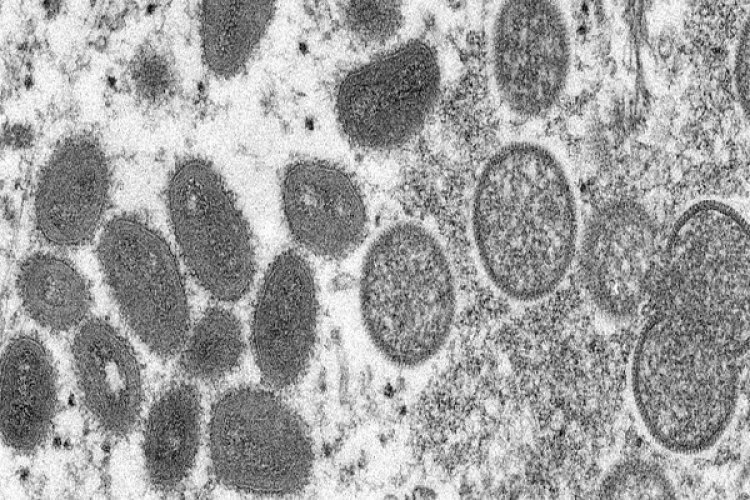Monkeypox – the viral disease transmitted from animals to humans, also spread between people – has so far been reported in dozens of developed countries in Europe and North America.
Confirmed cases were inching closer to a hundred as at Tuesday, while more cases are under investigations.
Countries like Belgium have moved to enforce mandatory 21-day quarantine for monkeypox patients, the US is mulling release of vaccine for the disease and other countries are contemplating possible prevention measures as the virus increasingly become of concern.
Also read: Monkeypox virus: Western media slammed over racist reporting
But what do health experts know about the latest spread of monkeypox virus? Is there a risk of becoming a major outbreak?
No link with travel, infected animals
According to the World Health Organisation (WHO), there is no clear link between the cases so far reported and travel from endemic countries and no link with infected animals.
The organisation’s list of monkeypox endemic countries has Benin, Cameroon, the Central African Republic, the Democratic Republic of the Congo, Gabon, Ghana (identified in animals only), Ivory Coast, Liberia, Nigeria, the Republic of the Congo, Sierra Leone, and South Sudan.
WHO indicates that studies are underway in affected countries to determine the source of infection of each identified case, and actions to provide medical care and limit further spread.
Virus spread, symptoms
Health experts at WHO indicate that the infection spreads between people in many ways including physical contact with someone with symptoms, touching things contaminated with the virus (bedding, towels, clothes, etc), and through saliva, and respiratory droplets.
Typical symptoms of monkeypox include rash with blisters – on face, hands, feet, eyes, mouth, genitals – fever, headaches, muscle aches, low energy and swollen lymph nodes.
FACTBOX
Below are more of your questions answered by WHO about monkeypox, its spread and extent of risk to the general public:
- Can people die from monkeypox?
In most cases, the symptoms of monkeypox go away on their own within a few weeks, but in some individuals, they can lead to medical complications and even death. Newborns, children and people with underlying immune deficiencies may be at risk of more serious symptoms and death from monkeypox.
- How does monkeypox spread from animals to humans?
Monkeypox can spread to people when they come into physical contact with an infected animal. Animal hosts include rodents and primates.
The risk of catching monkeypox from animals can be reduced by avoiding unprotected contact with wild animals, especially those that are sick or dead (including their meat and blood). In endemic countries where animals carry monkeypox, any foods containing animal meat or parts should be cooked thoroughly before eating.
- How does monkeypox spread from person to person?
People with monkeypox are infectious while they have symptoms (normally for between two and four weeks). You can catch monkeypox through close physical contact with someone who has symptoms. The rash, bodily fluids (such as fluid, pus or blood from skin lesions) and scabs are particularly infectious.
Clothing, bedding, towels or objects like eating utensils/dishes that have been contaminated with the virus from contact with an infected person can also infect others.
Ulcers, lesions or sores in the mouth can also be infectious, meaning the virus can spread through saliva.
It is not clear whether people who do not have symptoms can spread the disease.
- Can children get monkeypox?
Children are typically more prone to have severe symptoms than adolescents and adults. The virus can also be passed to a foetus or to a new born through birth or early physical contact.
- Is there a vaccine against monkeypox?
There are several vaccines available for prevention of smallpox that also provide some protection against monkeypox. A newer vaccine that was developed for smallpox (MVA-BN – also known as Imvamune, Imvanex or Jynneos) was approved in 2019 for use in preventing monkeypox and is not yet widely available. WHO is working with the manufacturer to improve access.
- Is there as risk of this becoming a major outbreak?
Monkeypox is not typically considered to be very contagious because it requires close physical contact with someone who is infectious (e.g., skin to skin) to spread between people. The risk to the general public is low.
- Is monkeypox a sexually transmitted infection?
Monkeypox can spread from one person to another through close physical contact, including sexual contact. It is currently not known whether monkeypox can be spread through sexual transmission routes (e.g., through semen or vaginal fluids), but direct skin-to-skin contact with lesions during sexual activities can spread the virus.
- Why is the disease called monkeypox?
The disease is called monkeypox because it was first identified in colonies of monkeys kept for research in 1958. It was only later detected in humans in 1970.


